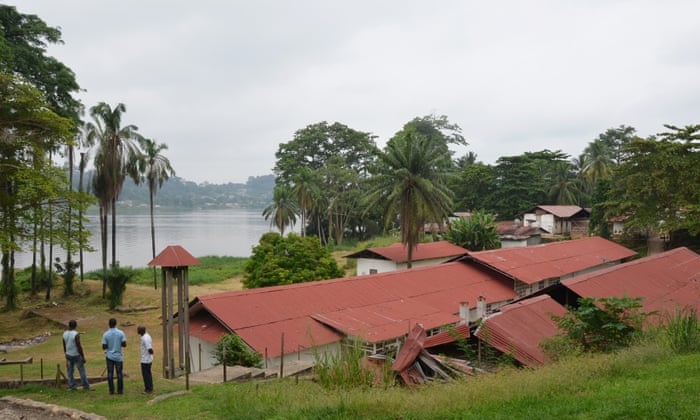
In 1913, the Schweitzers prepared to travel to Lambarènè, on the Ogowe River in what was then French Equatorial Africa. Here they founded their hospital at a station set up by the Paris Missionary Society. This area is now part of the independent West African republic of Gabon.
But first, they needed to do a lot of preparation.
Financing was provided by acquaintances, members of the church where Albert had preached, a benefit concert, and a lecture. Understandably, raising such funds was not always easy for work that had not even begun. But enough was raised to run the hospital for a year.
They had to shop for medical instruments, medicine, bandages, whatever was needed to outfit a hospital and also the home they would have. All in all they filled 70 cases.
Imagine the courage it must have taken to do all this! If you’ve ever built anything from scratch, whether it’s a garden or a house, you’ll know that it always takes a certain amount of commitment, determination, and courage. Sometimes a lot of courage. These are all characteristics held by people who want to make a difference.
Even if you didn’t have grand plans to make the world a better place, trying something new is exciting. Stepping out of your comfort zone to create something where nothing had previously existed is rewarding. You don’t have to be an Albert Schweitzer to know that.
Dr. Schweitzer’s first period in Africa was from 1913 to 1917. At first he had to use an old chicken coop as his consulting room. A few months later, he was able to use a corrugated iron building 26 feet long and 13 feet wide with a roof of palm leaves. It contained a small consulting room, an operating room, and a dispensary. Around this building, a number of large bamboo huts were gradually constructed for the patients.
The location was a good one. From a distance of 100 to 200 miles upstream or downstream, the sick could be brought to the hospital in canoes along the River and its tributaries.
In his autobiography Dr. Schweitzer wrote: “I realized that the physical misery among the Africans was not less but much greater than I had expected. How glad I was that in defiance of all objections, I had carried out my plan of going there as a doctor!”[1]
But their work was interrupted by World War 1 in 1917 when he and his wife, being Germans living in French Africa, were sent to a French internment camp as prisoners of war. They were released in 1918. Schweitzer spent the next six years in Europe, preaching in his old church, giving lectures and concerts, taking medical courses, and writing.
He returned to Lambaréné in 1924, spending most of the remainder of his life there. For much of that time his wife had to relocate and live separately due to ill health.
With the funds he earned from royalties and appearances and with those donated from around the world, he was able to expand the hospital to 70 buildings.
[1] Out of My Life and Thought, Albert Schweitzer, P.138
This has been Part 35 of the Series A Life Worth Living. Read Part 36 – A Village.
Leave a Reply